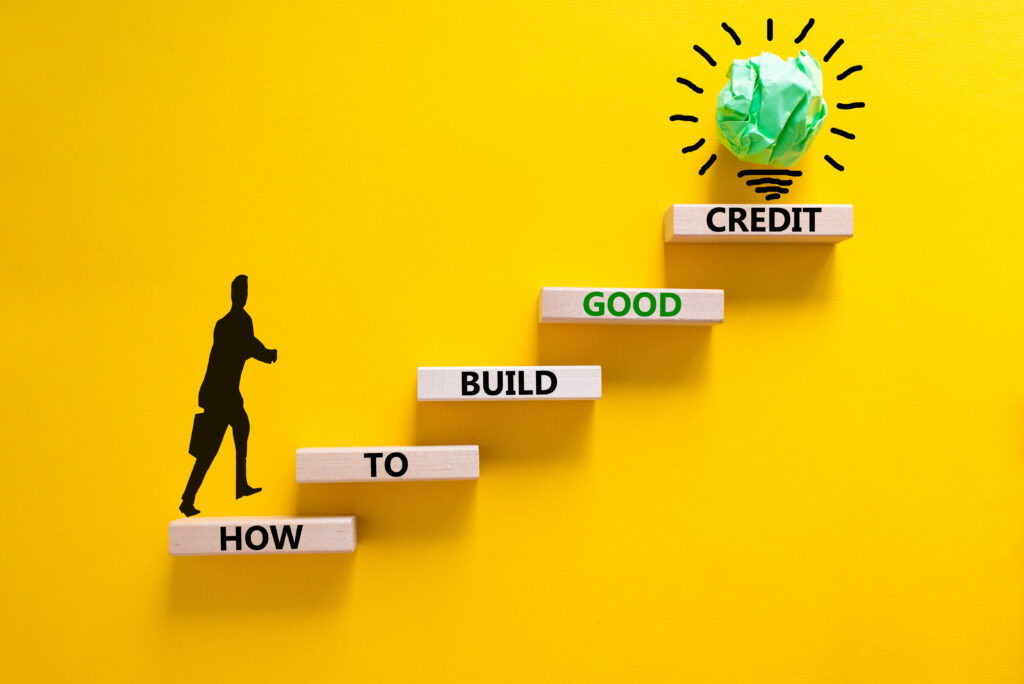If you’re looking to boost your credit score, you’re not alone. Whether you’re planning to apply for a mortgage, get a car loan, or simply want access to better financial products, improving your credit score is a smart move. In this guide, we break down 15 proven strategies backed by credit experts to help you raise your score. We’ll also introduce helpful tools, like Kikoff, that make credit-building easier and more accessible.
1. Dispute Errors on Your Credit Report
The first step to improving your credit score is understanding where you currently stand. Request your credit report from the three major credit bureaus—Experian, Equifax, and TransUnion—and review it for inaccuracies. Common errors like incorrect account statuses, outdated balances, or fraudulent activity can drag down your score. Once filed, “Furnishers generally must investigate and respond to your dispute within 30 days of when they receive the dispute.” (Consumer Financial Protection Bureau, 2024).
Disputing these errors can lead to fast improvements. Kikoff recommends reviewing your credit report at least once a year, and their dashboard can help you track your progress and see how changes affect your score.
2. Pay Your Bills on Time
Payment history accounts for 35% of your FICO score, making it the most influential factor. Late or missed payments can stay on your report for up to seven years. Consider, “[U]sing these general criteria; how recent the late payments are, how severe the late payments are, and how frequently the late payments occur.” (FICO, 2025).
Set up automatic payments or calendar reminders to ensure you never miss a due date. Kikoff’s credit-building plan reports your on-time payments to major credit bureaus, helping you build a positive payment history — even if you’re just starting out.
3. Lower Your Credit Utilization Ratio
Credit utilization is the amount of credit you’re using compared to your total available limit. Experts suggest keeping this ratio below 30% to positively impact your score, meaning that, “A higher overall credit limit could help you keep your credit utilization lower than it would be otherwise and could make a big difference in your credit score.” (NerdWallet, 2025).
For example, if you have a $1,000 credit limit, try to keep your balance under $300. Kikoff offers a revolving line of credit that helps you keep utilization low while building credit through responsible use.
4. Become an Authorized User
Ask a family member or close friend with good credit to add you as an authorized user on their credit card. This allows their positive payment history and credit utilization to be reflected on your report.
Kikoff supports other methods for building credit without relying on someone else’s account, but becoming an authorized user can be a great supplemental strategy for new credit builders.
5. Open a Credit-Building Account
Credit-builder loans or accounts are designed specifically to help people establish or improve credit. These accounts work by reporting your monthly payments to credit bureaus, with credit-builder loans being recommended as one of the top five best ways to build your credit (Experian, 2023).
Kikoff offers a credit-building account that requires no hard credit check, no interest, and no hidden fees. It’s a smart, low-risk way to build a strong credit history.
6. Diversify Your Credit Mix
Credit scoring models favor a mix of credit types—credit cards, installment loans, retail accounts, and mortgages. A healthy mix shows lenders you can manage various types of credit responsibly.
Kikoff’s products count toward your credit mix by reporting as installment or revolving credit, depending on the product you choose. As you add to your mix, it, “Counts for 10% of your FICO credit score.” (CNBC, 2024).
7. Keep Old Accounts Open
Length of credit history matters; the longer your accounts have been open, the better. Closing old accounts can shorten your average credit age and hurt your score.
Even if you no longer use an account, consider keeping it open to maintain your credit history.
8. Limit Hard Inquiries
Every time you apply for a credit card or loan, a hard inquiry is recorded on your report. Too many inquiries in a short time can negatively affect your score. However, “There’s no such thing as ‘too many’ hard inquiries, but multiple credit inquiries within a short window of time can suggest that you might be a risky borrower.” (American Express, 2024).
Kikoff doesn’t perform hard credit checks, making it a great option for building credit without hurting it. Use Kikoff to strengthen your profile before applying for more traditional credit products.
9. Set Up Payment Reminders
Sometimes the simplest strategies are the most powerful. Setting up text or email reminders can ensure you never miss a payment.
10. Use a Secured Credit Card
Secured credit cards require a deposit but function like regular credit cards. They can help establish a positive payment history and boost your score over time.
Kikoff offers a secured credit card that works like a debit card but provides all the benefits of a credit card, with zero fees and interest,
11. Pay More Than the Minimum
Paying the minimum payment keeps your account in good standing, but paying more can reduce your balance faster and improve your credit utilization. This strategy not only saves you money on interest over time but also shows lenders you’re managing your credit responsibly. Consider setting up automatic payments for more than the minimum each month to maintain this positive habit.
12. Use a Credit Monitoring Tool
Credit monitoring helps you track changes to your score, detect fraud early, and stay informed about your credit profile.
Kikoff includes free credit monitoring, giving users the tools they need to see exactly how their credit is improving over time. Monitoring your credit, “Can help protect your credit history from errors and help you spot signs of identity theft.” (FTC, 2022).
13. Avoid Closing Unused Cards
The age and diversity of your credit accounts matter. Closing unused cards can decrease your total available credit and shorten your credit history.
Kikoff’s revolving line of credit stays open as long as you use it responsibly, helping to stabilize your credit profile over time.
14. Establish Credit Early
The sooner you start building credit, the better. An early start gives you time to build a strong foundation and avoid common mistakes, giving you time to, “Consider tools to help establish credit.” (Bank of America, 2025).
Kikoff is designed for people who are new to credit or looking to rebuild. Its easy-to-use tools and educational content make it an excellent first step on your financial journey.
Credit Score Improvement Tools Compared
Here’s a quick comparison of popular tools and services for building credit:
| Kikoff | Self | Experian Boost | Kovo | |
|---|---|---|---|---|
| Reports to 3 Bureaus | ✔ | ✔ | No | ✔ |
| No Interest | ✔ | No | ✔ | ✔ |
| Secured Credit Card | ✔ | ✔ | No | No |
| Rent Reporting | ✔ | ✔ | ✔ | No |
| Identity Theft Insurance | ✔ | ✔ | ✔ | No |
| Starting from | $5/mo | $25/mo | Free | $10/mo |
FAQs About Improving Your Credit Score
Q: How long does it take to improve my credit score?
A: It depends on your current score and the steps you take. Positive changes can start impacting your credit score in as little as 30 days.
Q: Can I build credit without a credit card?
A: Yes. Services like Kikoff offer non-card options that report to credit bureaus, helping you build credit without a traditional credit card.
Q: Will using Kikoff hurt my credit?
A: Kikoff does not perform a hard inquiry and reports your payments to all three major credit bureaus, helping you build credit safely.
Q: Is Kikoff a loan?
A: Kikoff offers a revolving line of credit and a credit-building account, but they work differently from traditional loans. There’s no interest, and all payments go toward building your credit.
Q: What’s the best way to start improving my credit today?
A: Start by checking your credit report, paying your bills on time, and using a tool like Kikoff to begin building positive history right away.
Sources
American Express. 2024. “How Many Credit Inquiries Are Too Many?“ https://www.americanexpress.com/en-us/credit-cards/credit-intel/credit-inquiries/.
Bank of America. 2025. “4 key credit moves for 20-somethings.“ https://bettermoneyhabits.bankofamerica.com/en/credit/how-to-build-up-credit.
CNBC. 2024. “How to get a good credit mix and boost your credit score.“ https://www.cnbc.com/select/how-to-get-a-good-credit-mix/.
Consumer FInance. 2024. “How do I dispute an error on my credit report?“ https://www.consumerfinance.gov/ask-cfpb/how-do-i-dispute-an-error-on-my-credit-report-en-314/.
Experian. 2023. “5 Accounts That Help Build Credit and 5 That Don’t.“ https://www.experian.com/blogs/ask-experian/accounts-that-do-and-dont-help-build-credit/.
FICO. 2025. “How FICO® Considers Different Categories of Late Payments.“ https://www.myfico.com/credit-education/faq/negative-reasons/late-payments.
FTC. 2022. “Free Credit Reports.“ https://consumer.ftc.gov/articles/free-credit-reports.
NerdWallet. 2025. “5 Tips for Lowering Your Credit Utilization.“ https://www.nerdwallet.com/article/finance/tips-for-lowering-credit-utilization.



